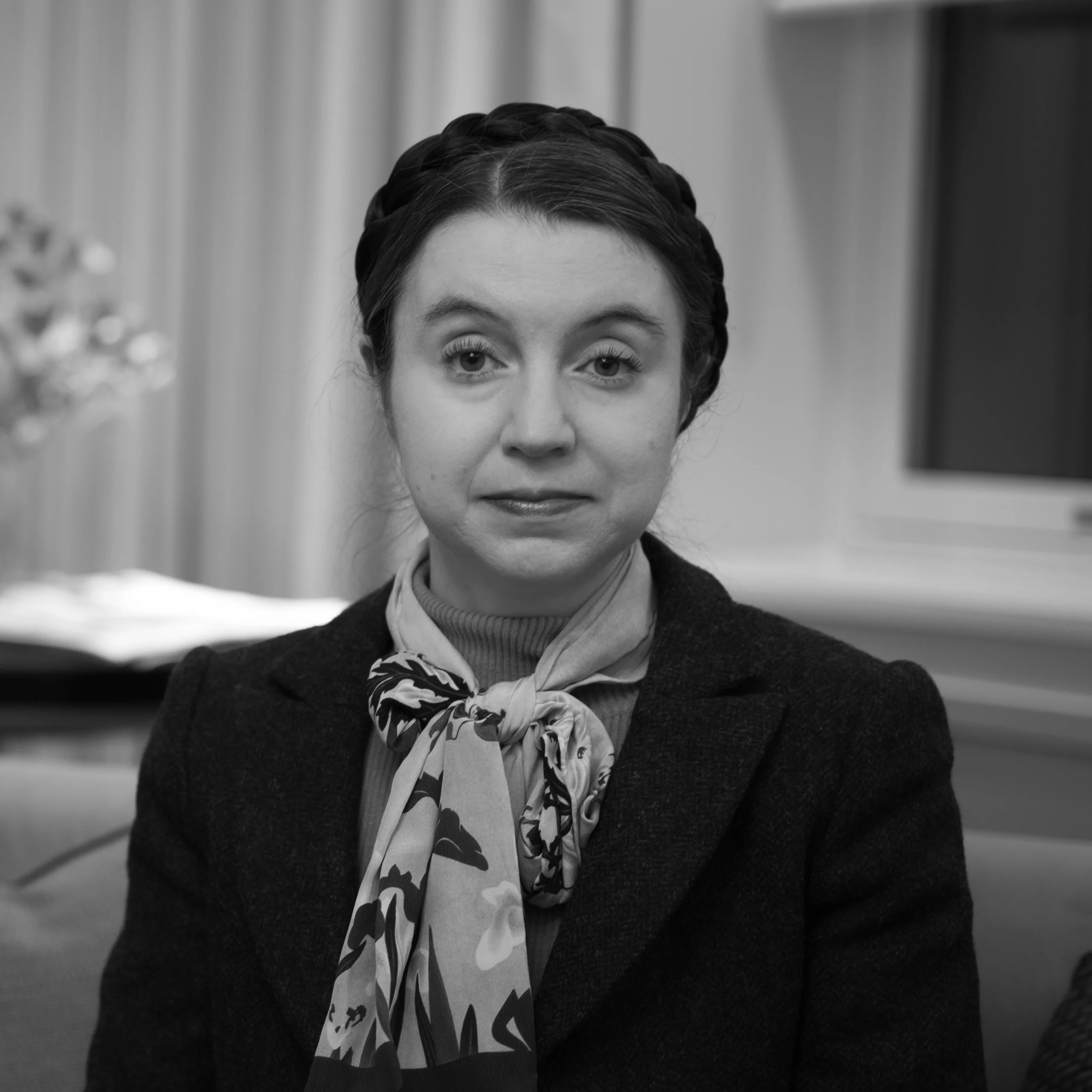
ABOUT
VICTORIA BATEMAN
Victoria is an economic historian, writer and historical consultant. Born in Tameside, Greater Manchester, to a long line of cotton mill workers, Victoria’s youth shaped her interest in both economics and history. After a state school education in Oldham, Victoria earned a degree in Economics from the University of Cambridge, followed by a Masters degree in Economic and Social History and a DPhil in Economics from the University of Oxford. She has twenty years’ experience of teaching economic history at the universities of Oxford and Cambridge, including as a Fellow and Director of Studies in Economics at Gonville and Caius College. In the 2025-2026 academic year, Victoria will be welcomed to Gresham College, London as a Visiting Lecturer in Economic History. She is also a Fellow of the Royal Historical Society and a Fellow of the Royal Society for the Encouragement of Arts, Manufactures and Commerce (RSA).
Inspired by the heritage of the Industrial Revolution, Victoria’s research has long focused on the question of how Europe became the relatively prosperous region it is today, as well as on the challenges faced in the modern age and the lessons that can be learnt from past historical experience. Her early research was guided by one question in particular: Why are some countries - or regions - rich and so many others still poor? It was a question that Victoria sought to answer by turning to history. In particular, by asking: How did Britain – a tiny little island off the edge of Europe – propel itself forward, from being a mere backwater to global civilisation, to become the most prosperous country in the world by the nineteenth century? It’s a question that is incredibly difficult to answer given that for millenia, all of the interesting action had been taking place well beyond Europe: in China, in the Indus Valley, in Africa and in the Middle East. Not only was Britain a backwater, so was Europe.
Victoria’s initial research began by testing a long-standing hypothesis: that free markets were key to the rise of the West. Her first book (published in 2012 and republished in 2016) measured and compared market development in different parts of Europe from the medieval era through to the modern period.
In her second book The Sex Factor (published in 2019) Victoria argued that Europe’s rise was rooted in the - relative - freedoms of women: that women were Europe’s secret weapon, allowing it not only to catch-up with but overtake parts of the world that had been ahead for millennia. While China, India/Pakistan, and the Middle East had long been at the frontier of global civilisation, Victoria argued that the lack of opportunities for women acted as a break on what these economies could achieve.
In her subsequent book - Naked Feminism (published in 2023) - Victoria explored the deep roots of women’s historic lack of opportunity: what she calls “the cult of female modesty” (society’s desire to “protect” women’s bodily honour, with their respect and worth being made conditional on their bodily modesty - on whether their bodies have been seen or touched). She delved into the history of female modesty, including society’s long-lived obsession with women’s virginity, with covering their bodies (including compulsory veiling) and “slut-shaming”.
In her latest book - Economica: A Global History of Women, Wealth and Power (published in August 2025) - Victoria weaves together twenty years’ worth of writing, teaching and research to present a new history of the global economy. While countless economic histories of our world have already been written, they all have one thing in common: they are written by men, for men and about men. They tell the story of how men - whether as scientists and engineers, bankers and industrialists or economic and political revolutionaries - made the West rich. Economica is different: journeying from the Stone Age to the present day, it immerses the reader in all of the most glittering economies of their day, but told through the lives not just of men but also of women. It places female entrepreneurs, merchants and industrialists at the centre of the story of how the world became rich.
Aside from her books, Victoria has also written for Bloomberg, CapX and UnHerd, as well as authoring articles for The Guardian, Times Higher Education and The Telegraph. She was resident economic historian on BBC Radio 4’s “Understand: The Economy”, has appeared on BBC News, Newsnight and ITV, and works as a historical consultant for a major television company.
Victoria is an outspoken critic of modern economics - for its neglect of women, its lack of historical emphasis and its lack of engagement with the wider social sciences. To help bring about positive change, she has served on the Royal Economic Society Women’s Committee, co-authored the 2021 Royal Economic Society Silver Anniversary Report The Gender Imbalance in UK Economics and made a public call for a sexual revolution in economics.
Victoria’s personal website can be found at www.vnbateman.com



